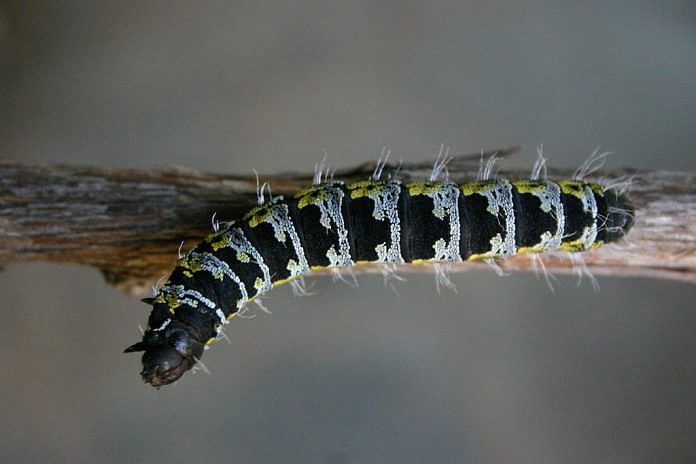Bengaluru: Globally, multiple species of moths and butterflies are susceptible to parasitic wasps and flies, which invade their bodies to lay eggs inside them, eventually killing them. However, some species of lepidopterans, the group that moths and butterflies belong to, have evolved to be resistant to such parasitic wasps.
New research has now shown that when some parasitic viruses infect these lepidopterans, a horizontal transfer of genes occurs. If the lepidopterans survive the viral infections, they borrow a gene from the virus that integrates into their genome and helps them fight off parasitic wasps.
The findings, made by a group of collaborative international teams, have been published in the journal Science.
What the study found
Parasitic wasps and flies lay eggs inside lepidopterans to provide a safe environment for their young, as well as an abundant source of immediate nutrition. Insects that spend their larval stage inside another host are called parasitoids. In the process of the parasitoid growing, however, the lepidopteran host ends up eventually dying. These lepidopterans are also susceptible to viruses, and parasitoids and the viruses compete for the same host body.
In the study, entomologists from the Tokyo University of Agriculture and Technology infected larvae of northern armyworms, one of the species whose adults are often resistant to parasitoids, with the common pox virus. They then introduced the surviving immature insects, along with armyworms unexposed to the virus, to parasitoids.
The team immediately found that the insects who had been exposed to the virus did not succumb to the parasites while the unexposed group did. Further, they discovered that the larvae that had been in contact with the virus killed the parasites. Even the plasma of the larvae was able to kill nearly every species of parasitoid in the experiment except one.
The team managed to identify and isolate two proteins in these larvae, which they have called parasitoid killing factor (PKF). The scientists think PKF is toxic to parasitoids and kills them.
Also read: Moths on night shift are working harder than other insects
Horizontal transfer of genes
In the meanwhile, an insect pathology team at the University of Valencia in Spain identified genes that were present in both the lepidopteran hosts and the lepidopteran-infecting viruses which are capable of making PKF. Using genetic data, they analysed the lepidopteran family tree to arrive at the conclusion that the PKF genes were actually transferred from these viruses to lepidopterans multiple times, integrating into their genome.
Finally, to verify that it was the PKF proteins that were responsible for neutralising parasitoids, molecular biologists at the University of British Columbia, Canada, experimented with beet armyworms, which produce PKFs. The researchers deactivated the genes that produce the proteins and exposed the worms to parasitoids, and many more parasitoids ended up surviving — showing that PKFs kill them.
During the course of the study, the researchers also discovered that there could potentially be the horizontal transfer of genes, i.e., from one organism to another instead of from parent to child, from the viruses to the parasitoids themselves as well.
The findings are expected to be helpful to agriculture, in understanding why some moths and caterpillars are often resistant to parasitoids that are used for pest control.
Also read: Canadian rocks dating back 890 mn yrs are oldest animal fossils? Not all scientists agree



